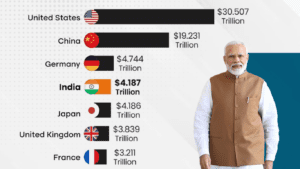Modern sociocultural views on fame have been totally revised through the power of social media. Traditional TV or movie confinements no longer restrict celebrities from attaining fame. People can achieve fame through their smartphones coupled with internet connectivity. The fundamental definition of success and popularity in the entertainment industry underwent a total transformation because of this change. The following text explores how social media platforms transform fame and social popularity perception.
The Rise of Social Media and Its Impact on Fame
The evolution of fame in present times owes its existence primarily to social media platforms including Instagram Twitter YouTube and TikTok. Celebrities now avoid depending exclusively on traditional media channels like television and music platforms to achieve celebrity status. Celebrities today can interact with their fan base directly through which they craft their own brand reputation while shaping what their fans think of them. Through Instagram platforms, celebrities can present their lifestyle together with their opinions and their fan interactions while providing visibility that traditional fame formats lacked. Personal life accessibility has fueled celebrity popularity thus creating more demand for their content. The Bollywood actors like Akshay Kumar and Priyanka Chopra gained fame through their film work but achieved even greater popularity through their online activities. Through their engagement with millions of fans, they established brands that expanded their popularity areas past their acting achievements.
The rise of social media platforms provides ordinary people with ways to achieve fame by sharing viral content which generates either large-scale or narrow-interest popularity. The user base of TikTok provides people with the ability to transform from average platform members into influencers within a brief period. The transformation in public figures has resulted in multiple paths to popularity that distinguish each person from the others.
Shifting Definitions of Fame and Popularity
Social media changed the definition of fame drastically over the past years. During previous times fame exclusively belonged to people who achieved success in entertainment fields such as actors or singers or athletes. The definition of fame has expanded into multiple directions during this time period. Modern celebrity culture encompasses people who attract notice through things other than their talents such as engaging with fans and triggering audience controversy and by circulating viral content. Social media stars achieve fame through their Instagram audience size regardless of their lack of acting background. Kylie Jenner’s vast beauty industry success shows clearly yet her fame primarily depends on her use of Instagram and Snapchat platforms. She achieved mastery in self-promotion resulting in billions of value for her personal brand which she built completely through social media connections.
The measurement standards for popularity underwent substantial changes. Historically box office numbers together with TV ratings served as the primary indicators of fame. Social media platforms serve as the main metrics by which people measure fame through follower counts on Twitter and Instagram likes and popular TikTok content. The modification in public perception of celebrities happened because of these changes. Current celebrity fans demand up-to-the-minute content updates along with continuous personal interaction which traditional fame did not offer.
The Role of Influencers in Redefining Celebrity Status
Social media created new types of celebrities through influencers who got their fame from their growing online audience. People who begin as ordinary individuals create enormous fan followings through their content which focuses on beauty, fitness, fashion or travel topics. Influencers obtain fame through establishing relationships with particular audiences instead of using professional qualifications or acting expertise. Two famous examples of this new age stardom emerge through YouTubers PewDiePie and Instagram influencer Huda Kattan. Through social media these influencers demonstrated how creating a brand and making profits from it becomes achievable without traditional stage work.
Influencers demonstrate significant authority in fashion and marketing sectors along with other industries. Brands turn to influencers because they represent authentic voices capable of delivering authentic product promotions to their followers. In fact, a survey by this website found that 49% of consumers depend on influencer recommendations before making purchase decisions. The extensive power of these online personalities continues to grow with no indication of stopping.
Challenges and Ethical Concerns in the New Celebrity Culture
The expansion of fame opportunities through social media has produced both exciting prospects and ethical problems and new challenges. Public figures experience substantial pressure because of their need to maintain their online identity. Online visibility requirements for celebrities and influencers result in widespread burnout during which they face mental health breakdowns along with personal dilemmas. Public mistakes including cancel culture developments have made it problematic for celebrities to avoid negative consequences through maintaining flawless reputations. Social media manipulation along with influencer marketing ethical conduct has become a major point of concern. Certain influencers choose to sell products that contradict their genuine beliefs without considering their personal values because of financial incentives. Some celebrities and influencers boost their popularity through the purchase of artificial followers and engagement to deceive their audience. The deceptive practice damages both the trust of their audience and the overall reliability of social media celebrity status.
Users now express privacy-related worries because they want complete access to celebrity personal lives. Customers typically support transparency on social media yet rising exposure risks together with decreased personal privacy result in essential mental health and relationship problems for celebrities.
Conclusion
Social media transformed the entire celebrity culture by opening fame to everyone who wants it. The public definition of what constitutes popularity has undergone a major transformation because influencers now create virality with ongoing fan interfacing. Social media systems run beyond their basic social role because they function as effective tools to reshape prominent figures while establishing new success parameters. The new opportunities which these platforms introduced also require careful navigation of their accompanying challenges. New platforms and audience demands toward personalized content will drive further transformations in the celebrity culture space. Social media remains active as the number one channel for attaining fame but future developments might change how we understand celebrityhood. Only time will tell.




